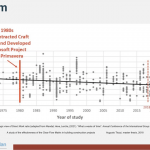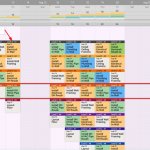Do you enjoy your weekly meetings? I don’t know a lot of people that do. They can be really long, and when things aren’t going well they can be really contentious. What are some of the ways that you can improve your weekly meetings?
A significant and important step is to begin seeing your role as coaching trade contractors as opposed to directing subcontractors. It’s a fundamental management shift essential to success in implementing a smart planning and operating strategy. Begin this shift by using the following recommended agenda for your weekly planning meetings.
- General and operational concerns (5 min)
- Confirm status of last week’s performance (15 min)
- Review last week’s performance against weekly plan (3 min)
- Finalize next week’s Weekly Work Plan (20 min)
- Make-Ready Planning / 2-6 Week Look-Ahead (15 min)
- Recap (2 min)
Your team might allocate the time differently, but the above sequence is what typically works for smart planning teams. Try to keep it under one hour. Issues requiring more time probably only concern a few people and should be addressed outside of the meeting.
All schedule and constraint issues included in the traditional meeting minute format need to be addressed in the context of the above Make-Ready Planning and Weekly Work Planning. Teams that have successfully implemented this approach have in some cases made the traditional meeting minute format go away and they capture all relevant information in their Touchplan project file.
In addition to using this agenda, you should get the team on a regular weekly schedule for submitting weekly work plans, reviewing and compiling plans, meeting and reviewing plans, and addressing constraints.
Your weekly meeting isn’t the only meeting that you should be having regularly. Daily huddles are important! Huddles should take five to ten minutes max! Start them now. Here’s our recommended agenda:
- Check with each foreman on whether they accomplished today’s promised work.
- For work that cannot be completed as promised, agree as a group on how this will be addressed, the goal is to maintain steady flow.
- Ask foremen what they learned today. Solicit one or two answers.
- Ask foremen what could be better. Solicit one or two answers.
If you stick to these meeting and agenda’s you find that your meeting times are shorter, more productive and better all around. Why just have a meeting, when you can have the best meeting!










